When each beat tells a story: Mithun Chakra urges more international collabs
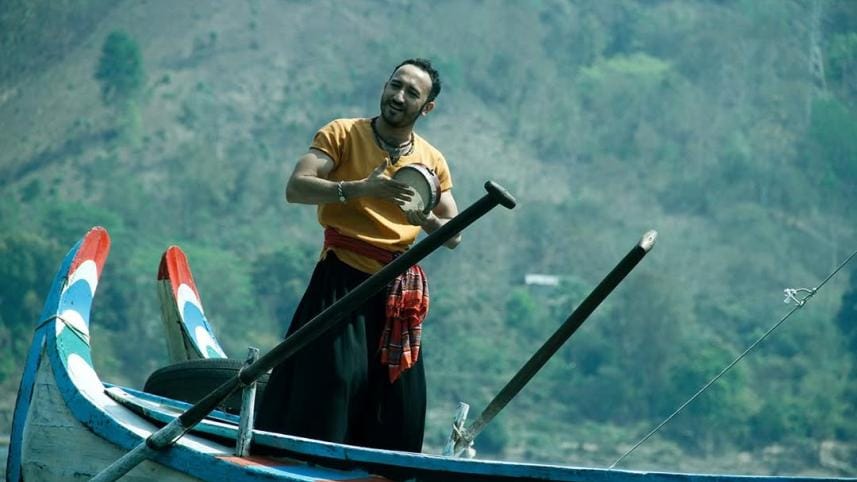
With music in his genes, renowned percussionist, composer, and singer Mithun Chakra started playing the tabla and singing at the age of two and a half. Born to parents Avijit Chakraborty, a prominent tabla player, and Kalyani Ghosh, a folk artiste– Mithun was raised in London and studied law. However, destiny led him to a career in music.
About a month ago, the musician performed at the UNESCO headquarters in Paris to celebrate the 25th anniversary of International Mother Language Day. This monumental occasion marked not just a personal achievement but also a collective step forward for Bangladeshi music on the world stage. In an interview with The Daily Star, the musician discussed his experience, musical journey, and hopes for the future of Bangladeshi music.
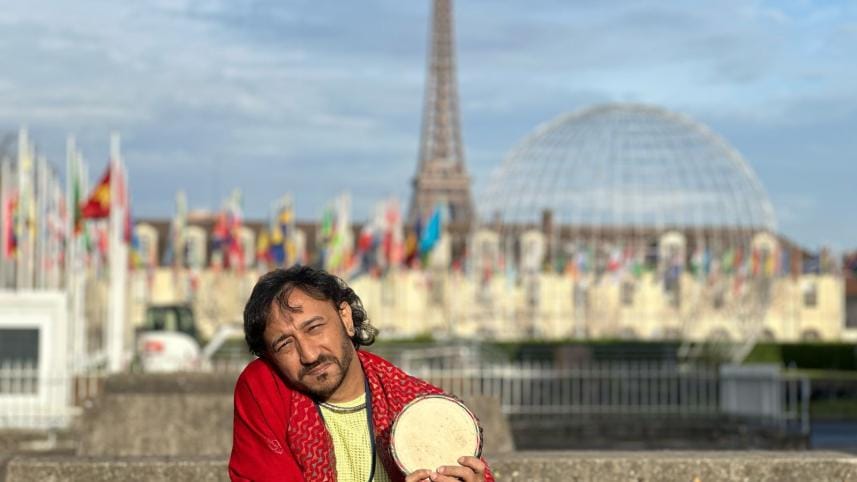
How was your experience performing at the UNESCO headquarters?
The experience has transformed my life forever. I've performed abroad many times with international artistes, but this was the first time I had the chance to perform officially as part of a government initiative. I consider this as a huge honour.
The feeling was overwhelming, especially because we were representing the Bengali language at such a prestigious venue, and it was all tied to International Mother Language Day. What made it even more special for me was that Mostofa Sarwar Farooki bhai, the Cultural Adviser, recommended Jalal Ahmed and me in particular.
To be chosen by him was a great deal for me, and that too alongside Jalal and other amazing musicians. I had never worked with Farooki bhai before, but that's the beauty of this initiative—it brings us together for something bigger than ourselves.
Growing up in London, you were exposed to a multicultural environment. How has that shaped your musical career?
Growing up in such a diverse city definitely had an impact on me. London's multiculturalism opened my eyes to so many different sounds and encouraged me to experiment and collaborate with various musical styles. I was fortunate enough to work with bands like Lokkhi Terra among others, where we combined Bangladeshi music with global influences. But no matter how far I've travelled or who I've collaborated with, the essence of my roots is still central to everything I create.
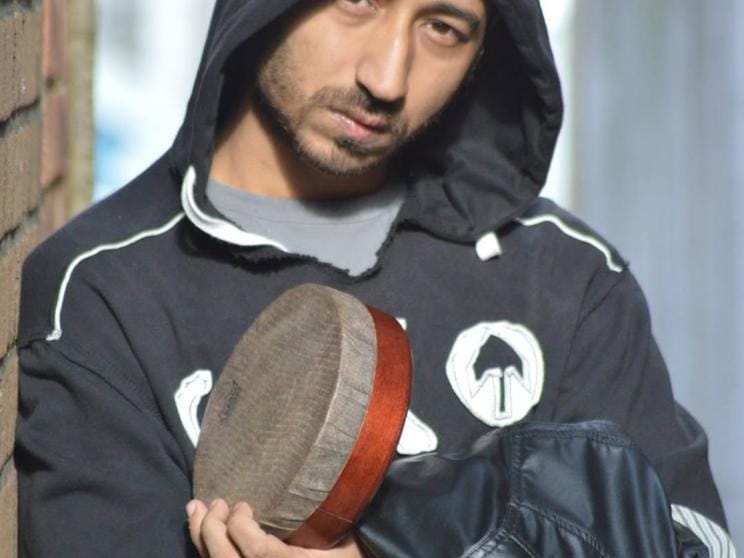
How do you envision taking Bengali music to global platforms?
Bangladesh still hasn't made a global impact with music. However, I think we're slowly getting there, especially with the rise of pop and rock in Bangladesh. When we look at countries like Brazil, India, or Pakistan, their music has found a solid place on the global stage. Many have carved out a spot for themselves on platforms such as the Grammys. Unfortunately, we haven't found that space yet. But performing at UNESCO and being part of such an important event made me realise that we're on the right path. We have talent and potential, thus if we keep pushing, I believe we'll make our mark. I dream of the day when we will play our dhol at the Grammys, and people will dance to the rhythm, knowing it is a Bangladeshi beat—that's my dream!
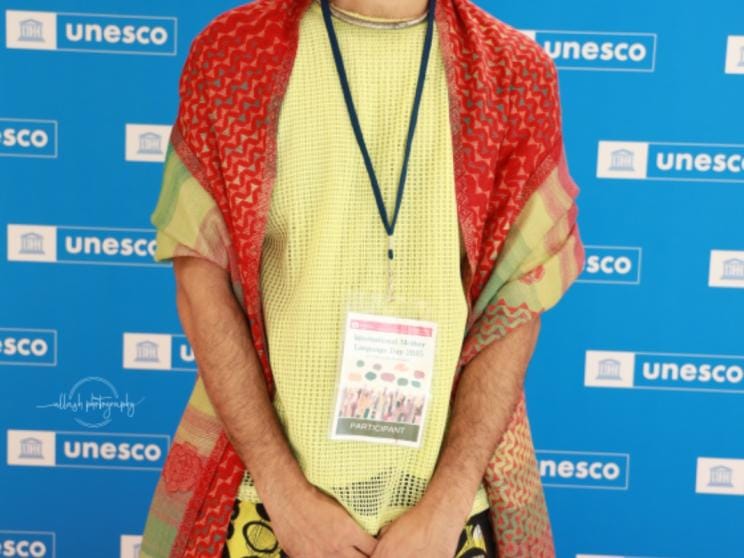
…Why particularly the dhol?
The dhol is our traditional Bangladeshi instrument. It's a symbol of who we are as a culture, and it frustrates me that it's not widely recognised outside Bangladesh. The dhol is such a powerful instrument, and it's time we made the world notice it.
You have voiced for the latest iteration of the popular jingle 'Shopno Jabe Bari', gaining wide recognition. How does it feel?
People know the song, but most of them still don't know that I voiced it (laughs). However, recognition for your work is always inspiring.
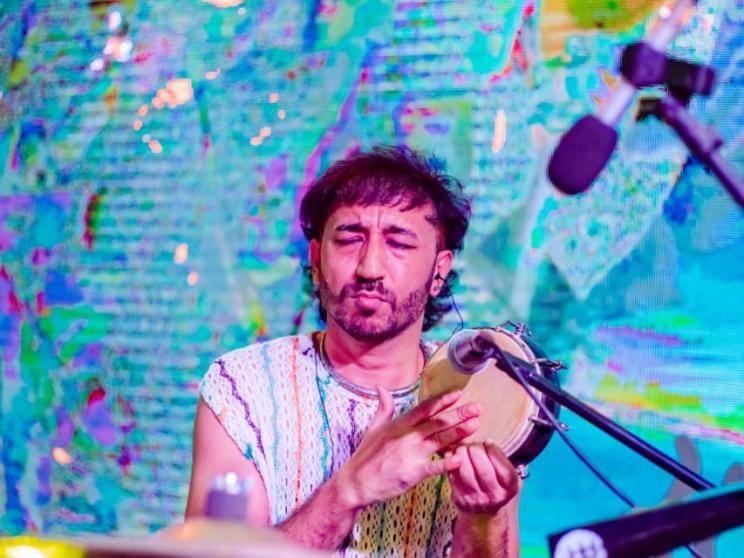
You have been a part of 22 songs so far in the Coke Studio Bangla. How was your experience with them?
We have the potential to tell our stories, to showcase our culture in a way that connects with people around the world. Platforms like Coke Studio Bangla have already started opening doors, and I truly believe this is just the beginning. The experience was great, and I am grateful to Arnob da for making me a part of this project.

As a percussionist, how do you see the role of instruments in creating music?
Instruments are powerful storytellers—they communicate emotions and narratives without saying a word. I've always been fascinated by how instruments like the tabla, dhol, sitar, or even a bass guitar can convey meaning without the need for lyrics. Unfortunately, in Bangladesh, we often focus more on the singer, the song, but not the instruments that bring the music to life. Music is more than just a melody—it's a collective energy, and the instruments play a massive role in that energy. It's time we start paying attention to that, not just the vocals.




 For all latest news, follow The Daily Star's Google News channel.
For all latest news, follow The Daily Star's Google News channel.
Comments